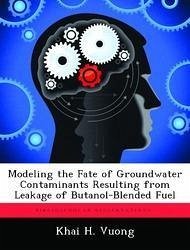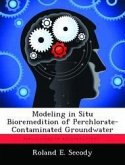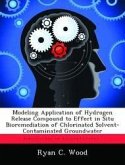Fuel spills and leaks from storage tanks can contaminate groundwater. Typically in groundwater, hazardous aromatic hydrocarbons like benzene are attenuated through natural processes. However, it is possible that adding butanol to gasoline will interfere with these natural attenuation processes, so that spills and leaks of alternative fuels containing biobutanol may result in more persistent hazardous aromatic hydrocarbon plumes. This effect has already been observed with ethanol, which is currently added to gasoline. A numerical model was developed to simulate the subsurface fate and transport of butanol-blended fuel to assess the potential impacts of butanol on the natural attenuation of benzene. The model incorporated advection, dispersion, sorption, and biodegradation of contaminants in groundwater. The biodegradation of benzene and butanol was modeled using dual Monod kinetics with degradation occurring under aerobic and anaerobic (sulfate-reducing as well as methanogenic) redox conditions. Model simulations indicated that spills of butanol-blended gasoline resulted in benzene plumes that were longer and more persistent than plumes which resulted from spills of gasoline alone. Electron acceptors (oxygen and sulfate) are more available for biodegradation of benzene in fuel without butanol. The presence of butanol decreased the availability of electron acceptors--limiting benzene's degradation and causing longer plumes.
Hinweis: Dieser Artikel kann nur an eine deutsche Lieferadresse ausgeliefert werden.
Hinweis: Dieser Artikel kann nur an eine deutsche Lieferadresse ausgeliefert werden.








